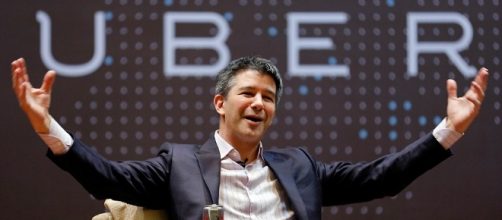Travis Kalanick, CEO of Uber, the popular taxi app used by millions across the globe and headquartered in San Francisco, announced on Thursday that he would be quitting President Trump's advisory council immediately. The news was initially shared with his employees via a memo on Thursday evening, with the announcement later being made public by the New York Times and Recode.
Intense criticism
Kalanick initially faced intense criticism from his fellow Silicon Valley counterparts for agreeing to work with the Trump administration. His problems were then compounded by the company's weak response to the Executive Order that banned immigration from seven predominantly Muslim countries, announced by the administration over the weekend.
Whilst the New York Taxi Workers Alliance announced a work stoppage in solidarity with those affected by the ban during the protests that followed, Uber's lack of participation led to intense protests from consumers. Compounding the problem, the company halted surge pricing during the strike, a move perceived by many as an attempt to profit from protests, as well as intending to break the strike.
#DeleteUber
It wasn't long before the hashtag #DeleteUber began to trend globally on social media, a specific boycott campaign that went viral in the space of a few hours. Uber hasn't officially announced the number of accounts that have been cancelled. However, the cancellation process, usually handled manually by staff members, was later automated in order to handle the level of demand that the company began to experience.
Information regarding the number of cancelled accounts will undoubtedly be announced at a later date.
In his statement, Kalanick specifically highlighted that whilst his position on the council may have been perceived to be an endorsement of the administration's policy, it in fact was not. His feelings were that, by remaining on the council, he would be able to advocate for just change on immigration. He specifically mentioned his fellow colleagues Thuan Pham and Emil Michael, themselves both refugees who came to the USA to "build a better life for themselves."
Whilst this has clearly been a difficult week for the company, it remains to be seen how significantly the business itself has suffered in the wake of this issue. Kalanick's decision today is an attempt to appease those unhappy with the organization's behavior, and aims to halt the number of consumers switching to competitors.

